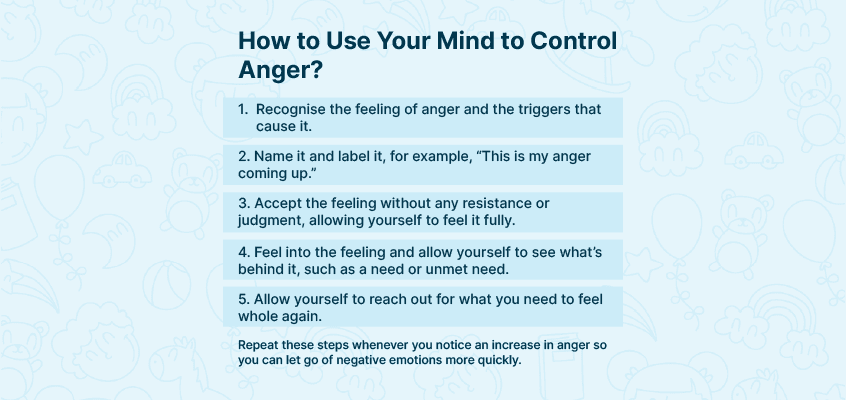When someone has a constant need for vengeance or anger that other methods cannot control, there might be a good reason to seek out an “anger therapist.” Many professionals can offer assistance, such as behaviourists, psychiatrists, psychologists, social workers, marriage and family therapists, clinical social workers, and pastoral counsellors. However, anger can easily be managed and regulated if you follow an appropriate process. In this article, we will discuss this process, or as you may call it, the things that your anger therapist never told you about controlling anger. But first, let’s start with some basics!
Who is an Anger Therapist?
The definition of an anger therapist is a mental health professional trained in the use of psychotherapy and other therapeutic methods to help people deal with angry feelings, prevent them from becoming dangerous, and improve their relationships.
The goal of an anger therapist is to help people identify and express their angry feelings in safe ways that can be constructive for themselves and others. An anger therapist may also work with people who experience other emotions such as sadness, grief, or fear but have trouble distinguishing these from angry emotions.
People consult an anger therapist when they need help controlling their emotions and dealing with situations that trigger their angry feelings. Anger therapists listen to what you say and give you advice about doing differently in those situations.
The first step for getting help from an anger therapist is to assess the severity of the problem and self-examine to determine what degree of use should be sought.
Our Wellness Programs
Looking for services related to this subject? Get in touch with these experts today!!
Experts

Kirti Bajpai

India
Psychologist
Experience: 5 years

Mansi Chawla

India
Psychologist
Experience: 12 years

Pompi Sharma

India
Life Coach
Experience: 5 years

Sapna Zarwal

India
Psychologist
Experience: 19 years

Deepti Gandhi

India
Life Coach
Experience: 6 years
What is Controlling Your Anger?
When you’re angry, what is controlling your behaviour and emotions, which can be a question we all ask ourselves. Managing anger can be challenging, but there are techniques that we can use to identify the trigger points of getting angry and healthily release our anger.
People can control their anger by distracting themselves, taking deep breaths, and imagining the best possible outcome for whatever situation made them angry. They can also be alone and think about what happened to make them mad before they project the anger in regretful ways.
Controlling anger is not always an easy task. But we can do it with mindfulness. Mindfulness is the technique of being fully in the moment: at this moment, there are no worries, there are no thoughts about what happened before or after this moment. It has been proved that mindfulness works for people who experience anger problems.
While some control their anger by meditating, some keep themselves busy with other activities, and others learn to be assertive. The first step of controlling your anger is to recognise what triggers your anger.
Why do you Need an Anger Therapist?
The need for an anger therapist may arise for various reasons, including
- Some people may find it difficult to control their anger and anxiety. They may be constantly angry and create problems in their life, such as getting into fights or losing their jobs. The therapist helps the person identify the source of their anger and then teaches them how to control it.
- There are times when a person needs an anger therapist for emotional support because he feels that nobody understands or supports him in times of distress. In this case, the therapist will teach you to stand up for yourself and speak your mind without fear or regret while providing a safe space to talk about anything going on in your life.
- There are a lot of cases where people don’t know how to handle their anger, which leads to them getting violent with others. The only solution they may have is to find an anger therapist who can help them cope with these feelings or teach them how to avoid getting angry at all.
There are many ways to control anger. Here are six steps you can take to use your mind to control anger:
How to Use Your Mind to Control Anger?
- Recognise the feeling of anger and the triggers that cause it.
- Name it and label it, for example, “This is my anger coming up.”
- Accept the feeling without any resistance or judgment, allowing yourself to feel it fully.
- Feel into the feeling and allow yourself to see what’s behind it, such as a need or unmet need.
- Allow yourself to reach out for what you need to feel whole again.
- Repeat these steps whenever you notice an increase in anger so you can let go of negative emotions more quickly.
Why do you Behave, Rude, When you’re Angry?
Anger is an emotional state of feelings of aggression, displeasure, and frustration. It is caused by different factors, including ones related to the person or angry people. The following are why people behave rudely when they are angered:
- Anger gives you a temporary thrill and makes you feel powerful.
- Anger leads to decreased inhibition, making it easier for people to say things they would not usually say or do.
- When someone is angry, their mental functioning changes. They might also have trouble concentrating on anything other than what made them mad in the first place. And such thought patterns are addictive.
- People act quickly and make rash decisions, which is because when people are in an angry state, they have low serotonin levels, which also makes them feel less inhibited.
How do Meditation and Exercise Help You to Control Anger?
Meditation and exercise are the two activities that help you to control anger.
- Through meditation, one can learn how to manage their thoughts and feelings. The practise teaches you to notice your thoughts and feelings without reacting or engaging with them. It also teaches you that your thoughts are just and you do not need to act.
- Exercise is an excellent way of releasing tension and stress. It releases endorphins which make you feel happy and relaxed. Exercise also increases your mental abilities by improving concentration, which is crucial for controlling anger.
Conclusion
It’s not always easy to control anger. Still, there are some things that you can do to help manage it: deep breaths, meditation or yoga, talking about your feelings, focusing on what you’re grateful for, and taking time for yourself every day to de-stress with hobbies like reading or walking.












